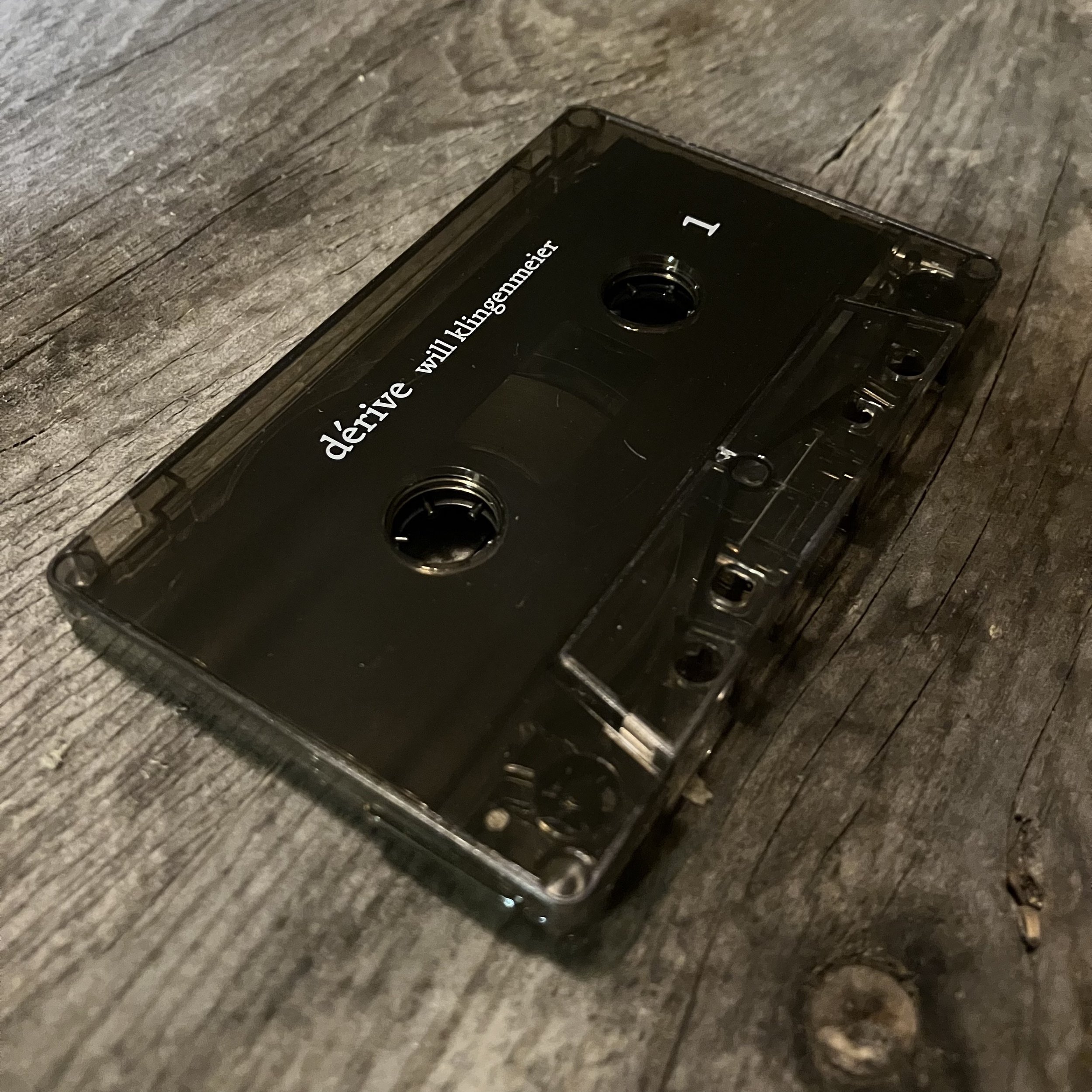dérive, Will Klingenmeier’s new ambient album, is glacially symphonic, a melding of lush sonic landscapes. Listening to it, I felt I was hearing rain as it seeped through a mound of jewels and leaves, through flower petals and the spring reverb of a vintage amp. The pieces juxtapose generated sounds and field recordings, and flow together like a river of glass. They serve as a reflection of contemporary interior life filtered through the terms of our shared external reality.
dérive is a collection of three to ten minute pieces pulled from Klingenmeier’s live stream series “Today’s sound is…” These live performances have unfurled for two to three hours apiece in over one hundred episodes (and counting) since September 2020, each one an aural meditation practice, a kind of monastic engagement with the craft of composition. They are laminar flows of sound that turn in upon themselves, both repeating motifs and brachiating into different textures—soothing and complex, subterranean, placid and engaging. As suggested by the title, each piece is connected to a place, to global wandering, and to memory. The album has the same qualities as the original performances—expansive soundscapes that stretch beyond rational time into a continuum of textures, blended and balanced seamlessly so that each cassette side, though a composite, can be heard as a single half-hour composition.
“Today’s sound is…” began in the wake of the Covid-19 lockdowns, during which Klingenmeier was confined to a small living space in Armenia. The pieces help us navigate the quality of simultaneous solitude and remote connection we all migrated to during that time. As a guiding principle of the compositions, Klingenmeier references Brian Eno: “Ambient music must be able to accommodate many levels of listening attention without enforcing one in particular; it must be as ignorable as it is interesting.” I found that to be the case with dérive, and it is as rewarding to listen with full concentration as it is to play it in the background of daily life, reading, housecleaning, cooking, or hanging with friends. I enjoyed the album equally through studio monitors and through a single bluetooth speaker.
The timbres of dérive include statics and hums, saturated guitar distortion, wind and rain, and sounds generated with Kyma, a sound-design system, mediated by performance on a Haken Continuum Fingerboard. There is a blur between field recordings and synthesized elements—Klingenmeier embraces this ambiguity, and notes that it’s sometimes hard to tell which sounds are “natural” and which are tape hiss or noisy guitar. In the blending of analogue and digital signals, and of virtual and natural worlds, dérive serves as a metaphor for contemporary life in which these things are often indistinguishable in our moment to moment reality. As such, with dérive, Klingenmeier has produced a masterpiece of ambient sound composition.
Liner notes by Scott Ezell





